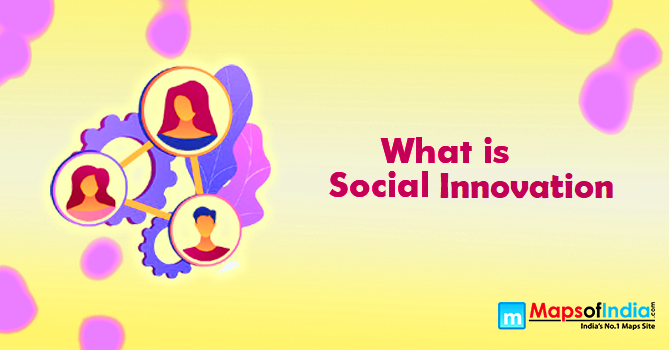Many resources with energy develop innovations in the science and technology sector, but as the day-to-day challenges increase in varying different spheres of our society, the time and consideration for social innovation remain neglected.
What is Social Innovation, and why does it matter to society?
Social Innovation, which fosters social inclusion, is a key to resolve the pertaining issues better than the current outcomes through conquering the forces driving social exclusion circumstances. It’s more ambitious, more strategic, and collaborative in providing access and opportunities to millions of poverty-stricken people to become a part of the global economy.
It describes a broad range of organisational changes that solve real problems, such as poverty, hunger and gun violence. It is the service of fulfilling a social need or addressing a social issue. It can develop and implement novel and valuable solutions to problems with a social purpose or benefit. It is also the way of developing and applying practical solutions to challenging and often systemic social and environmental issues supporting social progress.
The concept of social innovation is not unique to the nonprofit sector. It is driven by politics and government (new models of public health), markets (open-source software or organic food), movements (fair trade) and academia (pedagogical models of childcare), including the social enterprises (microcredit and magazines for needy ones).
Many of the most successful investors operate across boundaries between these sectors, and innovations move to the thriving path when there is practical cooperation and collaboration between small organisations, entrepreneurs and big organisations, which can further bring in new ideas.
The new emerging social relationships contribute to the diffusion and embedding of the innovation and encourage the cumulative dynamic, wherein each creation opens the room for other new social approaches.
It matters to everyone as it affects people’s lives, and under its significance, innovators find solutions that matter where it matters.
According to authors Pfitzer and Bockstette (2013), innovation is required in the following ways:
- To create more affordable health care services.
- To bring nutritious food to every corner of the planet.
- To improve educational outcomes.
- To tackle the global warming crisis.
Social innovation in the public sector is vital for the social and environmental challenges facing the current state.
Why is social innovation important?
Social innovation is important because it assists in solving some of the world’s most pressing issues with new solutions such as remote learning, fair trade, mobile money transfer, restorative justice and zero-carbon housing. While working on solutions, it also profoundly changes beliefs, basic practices, resources, and social power structures.
It provides a unique opportunity to pull out from a narrow way of thinking about social enterprises, business engagement and philanthropy and emphasise recognising the interconnectedness of numerous factors and stakeholders.
It is more important than ever as it offers the majority of opportunities in the following areas:
- Technology: Every day, new products are coming out, trying to alleviate the quality of life or health. Poverty and hunger are primary areas in this with a focus.
- Collaboration of communities: Social innovation calls for moving together and join forces for different sectors to get solutions together, not individually.
- Knowledge Sharing: Social Innovation allows for assessing and measuring the results of the projects.
What is the process of Social Innovation?
The social innovation process comprises facilitators, stakeholders interested in the local challenge or concern, support partners in social innovation tools and methods, and challenges owners, including communities or organisations having the rights and duties over a challenge.
The process is a list of activities that aims to search for solutions to a particular challenge.
The three phases of the social innovation process are as follows:
- Team cooperation and its building: With different minds and knowledge, the key to work effectively is by training the members on principles, tools and techniques, which could give a sense to everyone regarding the support
- Understanding local challenges: Organising workshops to pave the way for discussions between stakeholders and other required users. They could be identified, and further ideas can be worked on while co-creating solutions to have a vast impact
- Implementing the solutions: Backed by innovative ways, the methods are put into effect with new collaborations and exploring different ways.




